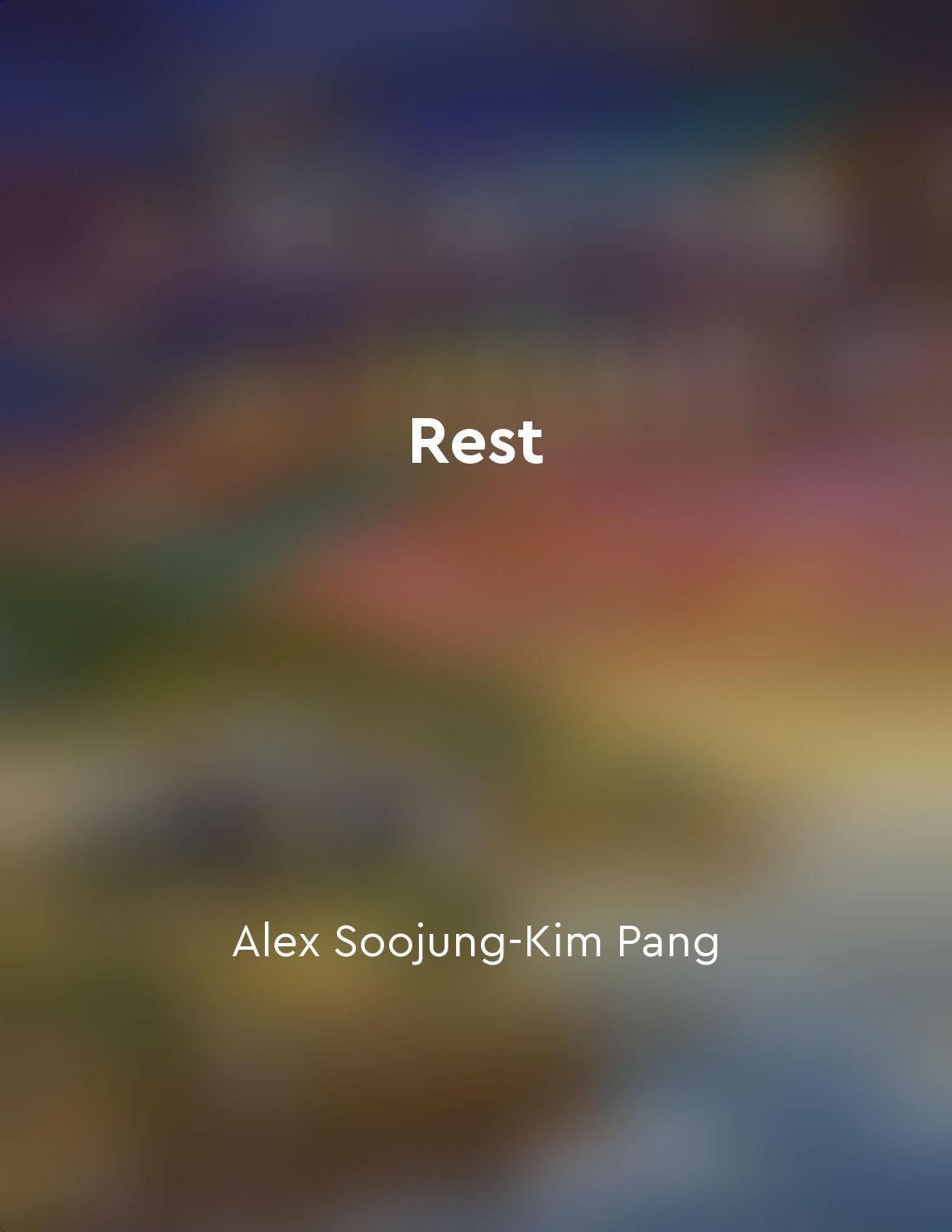Audio available in app
Mental downtime is necessary for mental health from "summary" of Rest by Alex Soojung-Kim Pang
In a culture that values busyness and productivity, we often overlook the importance of mental downtime. Contrary to popular belief, taking breaks and allowing our minds to rest is not a sign of laziness or weakness. On the contrary, mental downtime is crucial for maintaining our mental health and overall well-being. When we constantly push ourselves to work harder and longer without giving our brains a chance to recharge, we run the risk of burning out and experiencing mental fatigue. Our brains are not designed to operate at full capacity without breaks. Just like our bodies need rest after physical exertion, our minds also require periods of rest to function optimally. Research has shown that taking regular breaks throughout the day can actually improve our productivity and creativity. When we give our minds a chance to wander and relax, we are allowing them to make new connections and come up with fresh ideas. In fact, many great thinkers and creatives throughout history have valued rest and downtime as essential components of their creative process.- We can boost our cognitive abilities, enhance our problem-solving skills, and improve our overall mental health. Whether it's taking a walk in nature, practicing mindfulness, or simply daydreaming, finding ways to give our minds a break is essential for maintaining a healthy brain. So, the next time you feel guilty for taking a break, remember that mental downtime is not a luxury, but a necessity.


